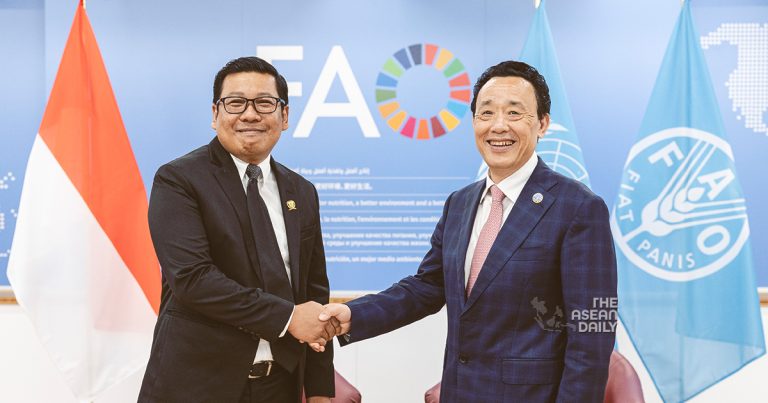28-7-2023 (JAKARTA) Head of the National Food Agency (NFA), Arief Prasetyo Adi, took the stage at the United Nations Food Systems Summit (UNFS) +2 Stocktaking Moment in Rome, Italy, on Wednesday (July 26) to shed light on Indonesia’s robust strategy in tackling the critical issues of food loss and waste.
In a statement received on Thursday, Adi emphasized the urgent need for global collaboration to combat food loss and waste, which poses significant risks of food scarcity and malnutrition on a global scale.
According to the United Nations, a staggering 14 percent of the world’s food production is lost between the harvest and retail stages, while an estimated 17 percent of the total global food production is wasted. This waste encompasses 11 percent in households, 5 percent in the food service sector, and 2 percent in retail.
To effectively tackle this pressing challenge, the Indonesian government is actively formulating policies to address food loss and waste, as reaffirmed by Adi during the summit.
Indonesia has identified several key strategies to confront this issue comprehensively. These strategies encompass behavioral changes, strengthened regulations, optimal allocation of funds for managing food loss and waste, focused research and development efforts, and the establishment of a comprehensive food loss and waste database.
One of the primary strategies to combat food loss and waste involves creating a platform that unites stakeholders from various sectors, including the food service industry (such as restaurants and hotels), organizations, and beneficiary groups.
Furthermore, the Indonesian government has taken significant steps in providing and facilitating food logistics to redistribute surplus food from donors to beneficiaries, particularly those in need. The successful implementation of this program has seen 27 tons of surplus food distributed to beneficiary groups in Jakarta between December 2022 and February 2023.
Adi expressed the government’s commitment to expand this initiative to other regions, ensuring that this movement continues to have a positive impact on the nation’s food security.
A study conducted by the Ministry of National Development Planning/National Development Planning Agency (Bappenas) in the 2000-2019 period revealed the staggering scale of food waste in Indonesia. The country produced between 23 to 48 million tons of food waste annually during that period, enough to support 61 to 125 million people or approximately 29 to 47 percent of the Indonesian population.
In economic terms, the losses resulting from food loss and waste amounted to a staggering Rp551 trillion (approximately US$36.6 billion).




